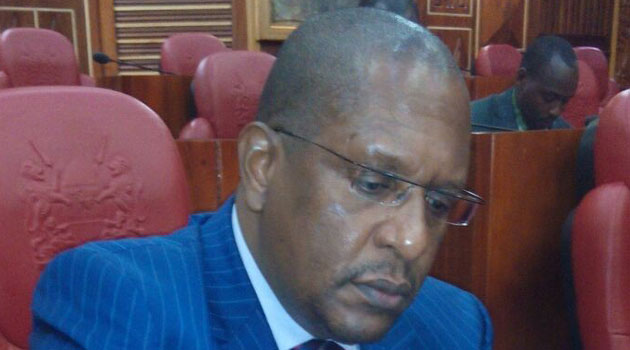
He told the committee that, “politicisation and ethnicisation,” was a, “major,” challenge his office was facing in its bid to successfully prosecute high ranking individuals on charges of corruption/CFM
But according to the testimony that Director of Public Prosecutions Keriako Tobiko gave before the Senate Legal Affairs and Human Rights Committee on Thursday, not everyone in the political class actually goes beyond lip service in this belief.
He told the committee that, “politicisation and ethnicisation,” was a, “major,” challenge his office was facing in its bid to successfully prosecute high ranking individuals on charges of corruption.
“All of us live in this country and I think you understand what I mean. You make a decision to prosecute a person against whom you find sufficient evidence, it becomes a question of our party is being targeted, our community is being targeted and you hear insinuations or suggestions that we should borrow the Ocampo formulae, in other words, you balance, you take one from this political side, and one from the other so you balance the political equation.”
He said he believed one of the reasons his office has been underfunded and therefore unable to retain competent staff able to successfully prosecute complex economic crimes, was a machination of the political class to keep the fight against corruption at the lip level and not truly root it out by holding the guilty to account and therefore dissuade those tempted to abuse public offices in future.
“And a lot of it is not open. It’s covert pressure; including the question about budget allocation. Displeasure can easily, and actually it does sometimes be expressed by how much you’re allocated or not allocated in a particular year,” he explained.
It’s worth noting that for the 2015/16 financial year, the National Treasury has allocated Sh2.2 billion to the DPP’s office and Sh2.6 billion to the Ethics and Anti-Corruption Commission, “to enable them speed up investigations and prosecutions,” the Cabinet Secretary in-charge, Henry Rotich, said in his budget statement to the National Assembly.
Other impediments to the successful prosecution of corruption cases, Tobiko said, is the transfer, “en-masse,” of magistrates handling corruption cases.
“A number of cases have had to start afresh because magistrates are transferred when they’re mid-way or even two-thirds through witness testimony.”
Getting witnesses to testify against high-ranking individuals in graft cases, Tobiko said, was another challenge. “In many cases they’re former colleagues who turn hostile.”
The absence of legislation to protect whistle blowers, outdated legislation on extradition and mutual legal assistance given the trans-national nature of corruption cases such as the Triton and Tokyo embassy scandals, Tobiko gave as examples, frustrated his office’s efforts to cut out endemic corruption in Kenya.














































